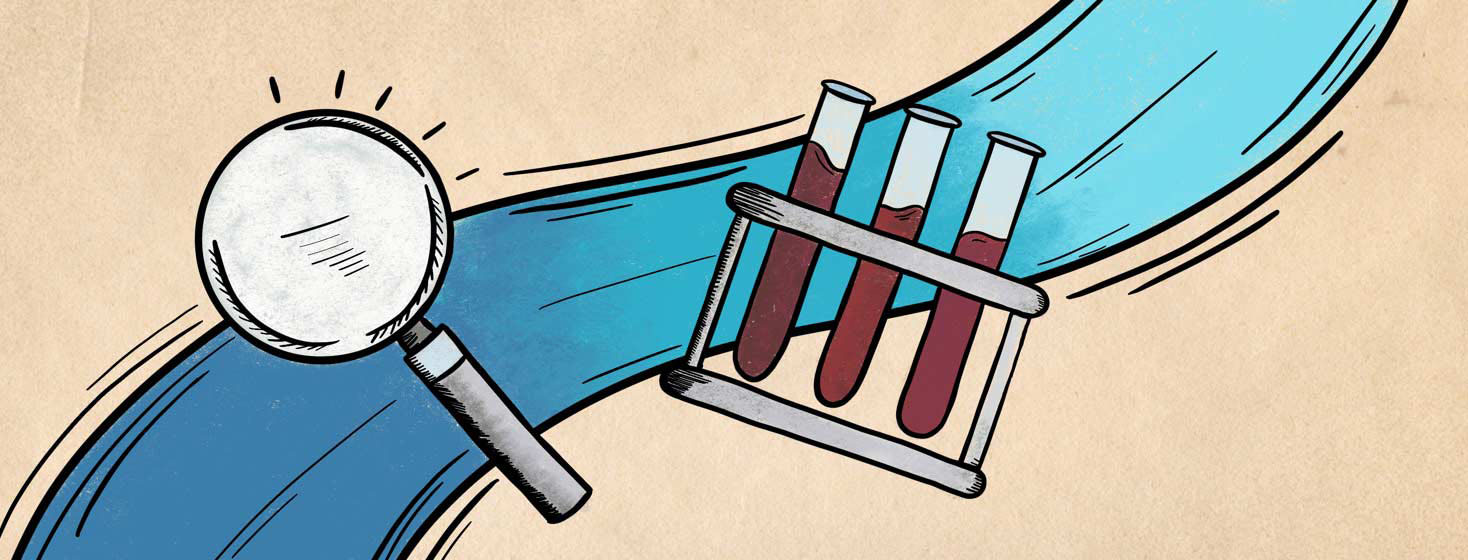All About My Partner's CF Carrier Testing
CF genetic testing is an important step in both the diagnosis of CF as well as determining if someone carries the CF gene without actually having the disease. Many parents-to-be complete carrier testing to understand the risk of passing cystic fibrosis onto their future children. This is true in our case as a couple since I have CF and my husband does not. However, we wanted to learn about his CF carrier status prior to starting a family of our own.
Quick review of CF genetics
As you might know, CF is caused when a person inherits two copies of the cystic fibrosis transmembrane conductance regulator (CFTR) mutation, one from each parent. If a person inherits just one copy, they are considered a “carrier” and don’t have the disease. According to the CF Foundation, each time two CF carriers have a child, the chances are:1
- 25 percent (1 in 4) the child will have CF
- 50 percent (1 in 2) the child will be a carrier but will not have CF
- 25 percent (1 in 4) the child will not be a carrier of the gene and will not have CF
In addition, when someone with CF, like myself, has a child with a carrier the chances of passing CF on are as follows:1
- 50 percent (1 in 2) the child will be a carrier but will not have CF
- 50 percent (1 in 2) the child will have CF
Although the genetics of CF can be confusing, there’s a way for a couple to make an informed decision on their risk of having a child with cystic fibrosis with the use of carrier testing.
Deciding to do carrier screening
A CF carrier screen was ordered for my husband by my CF clinic soon after we were married. We decided prior to thinking about family planning, we needed to know whether my spouse carried the CF gene or not.
We were in agreement if he was a carrier, we would not be comfortable trying for biological children. However, if he wasn’t a carrier we felt comfortable moving on as our children would only be carriers themselves. Every family has their own level of comfort in this type of situation, and it’s important to talk about it early and often so you can make an informed decision moving forward.
How does a cystic fibrosis carrier test work?
A CF carrier test is a simple and non-invasive test sent to a local or specialized laboratory. The screening can be done in three ways:2
- A test using a cotton swab to collect cheek tissue cells
- A test using your saliva
- A test using your blood
The specimen is sent to the laboratory with the prescription from your doctor indicating the number of mutations being screened for. The results should only take 1 to 2 weeks and will be sent to your doctor or genetic counselor to be discussed.
My husband’s test and results
In our situation, my spouse had a blood test through the local hospital lab that tested for the most common 90 mutations that cause CF. Waiting for his results to come back was excruciating. It took 10 days before the results were reported by my CF doctor at the time. We learned that my husband was NOT a carrier of the most common 90 mutations. What a relief! We were really happy to know the risk of passing CF onto our children was relatively low.
Have you or your loved one completed cystic fibrosis carrier testing? Share your experience in the comments below!

Join the conversation